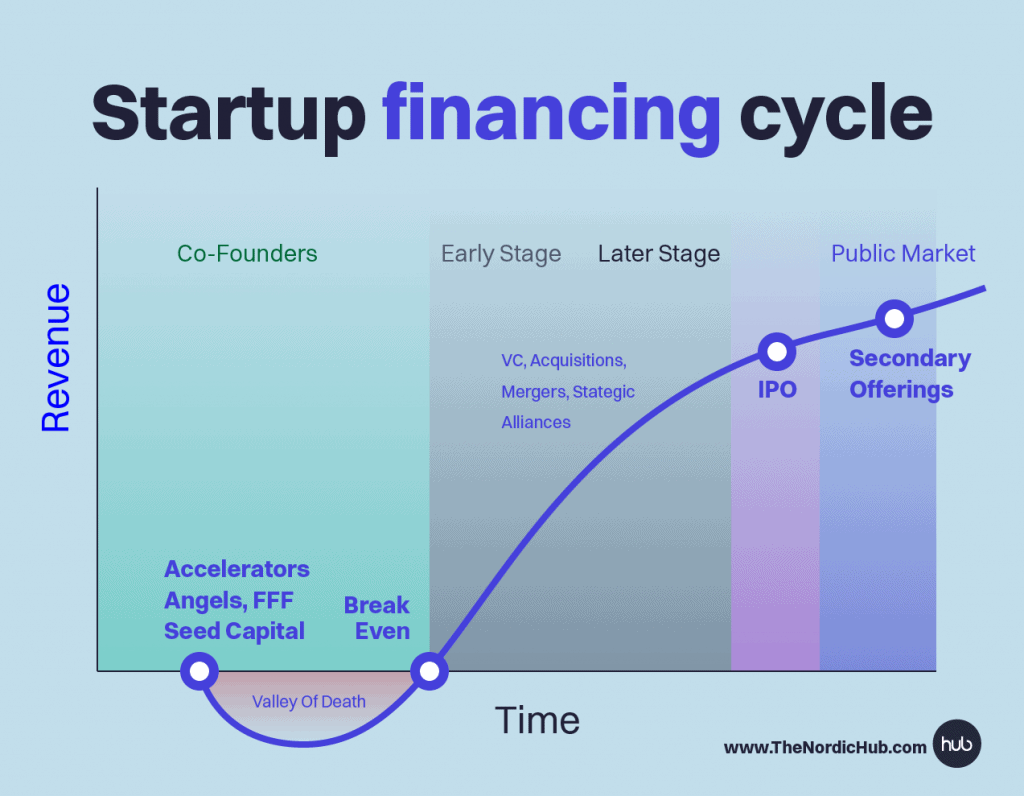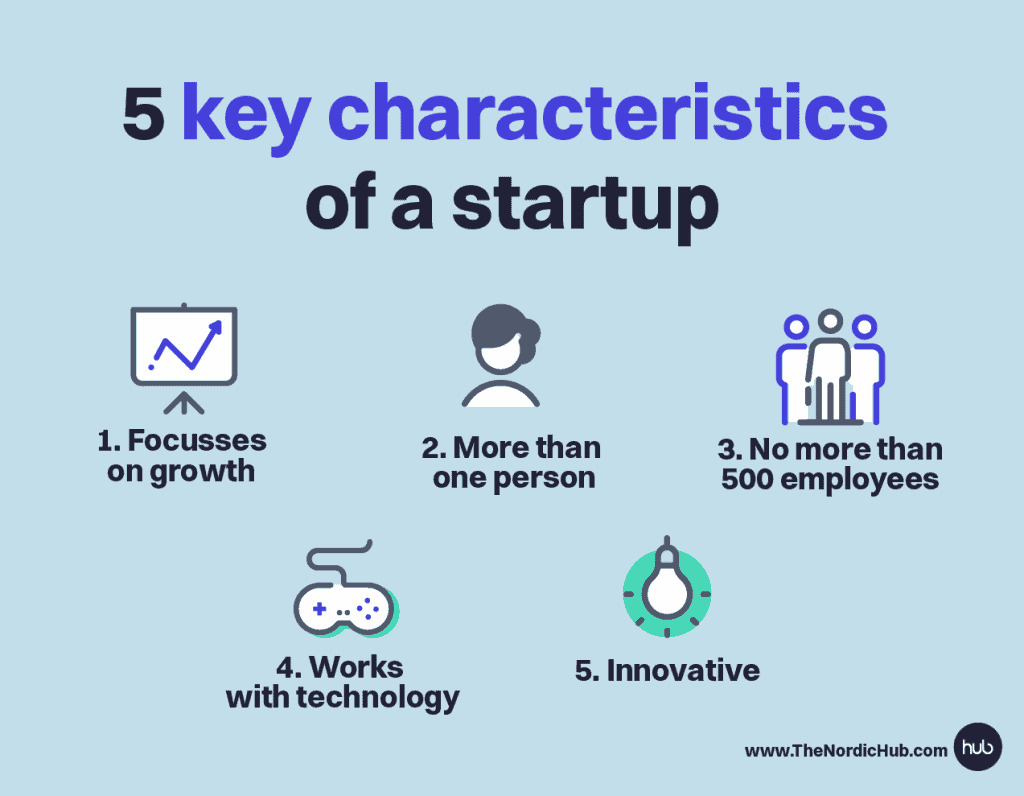What is a Startup? A startup is a young business created by one or more founders with the aim of developing and marketing a new product or service. The average startup is, by definition, a shoestring operation, with initial financing provided by the founders or their friends and family.
What Is A Startup
A startup (or start-up) is a company typically in the early stages of its development; startup businesses frequently use technologies like the Internet, e-commerce, computers, telephones, and robotics. These businesses are typically involved in the development, validation, and research for the target market and the design and implementation of innovative development, validation, and research methods.
These entrepreneurial ventures are typically started by 1-3 founders who focus on capitalising upon a perceived market demand by developing a viable product, service, or platform.
Startup firms with few to no sales in the early stages. They have a concept that they must refine, analyse, and sell. That takes a lot of money, and entrepreneurs can get it from a variety of places:
- Small business loans from banks or credit unions, government-sponsored loans from local banks and grants from nonprofit groups and state governments are also traditional funding sources.
- Incubators often partnered with business schools and other nonprofits to provide startups with mentoring, office space, and seed capital.
- Angel investors and venture capitalists aggressively search out ambitious companies to fund in exchange for a share of the enterprise as it gets off the ground
How Are Startups Funded?
Startups generally raise money via several rounds of funding:
- There’s a preliminary round known as bootstrapping, when the founders, their friends and family invest in the business.
- After that comes seed funding from so-called “angel investors,” high-net-worth individuals who invest in early-stage companies.
- Next, there are Series A, B, C and D funding rounds, primarily led by venture capital firms, which invest tens to hundreds of millions of dollars into companies.
- Finally, a startup may decide to become a public company and open itself up to outside money via an IPO, an acquisition by a special purpose acquisition company (SPAC) or a direct listing on a stock exchange. Anyone can invest in a public company, and the startup founders and early backers can sell their stakes to realize a big return on investment.

How Does a Startup Work?
On the surface, a startup is similar to any other company. A team of staff collaborates to develop a product that consumers may like to purchase. What sets a startup apart from other companies, though, is how it goes about doing so.
This also highlights another main difference between startups and other businesses: pace and expansion. Startups strive to develop inventions rapidly. They often do so through a mechanism known as iteration, in which they refine goods based on input and user results. Sometimes, a startup will start with a skeleton of a product called a minimum viable product (MVP), which it will refine over time.
The general concept is that startups seek out new, scalable alternatives to well-known problems. Whether it's a brand different product, a service in a new location, a new method of monetization, or a new method of distribution, creativity in one form or another is the secret to startup growth.

The word "startup" was coined in the wake of the industrial boom at the turn of the century. Real, today's entrepreneurs also want to deal with tech. However, an increasing number of startup companies are focusing on solutions that seem to have little or very little to do with technology.
Startups are primarily looking to quickly grow their client bases while improving their offerings. This allows them to gain bigger market shares, which allows them to collect more capital, which allows them to expand their offerings and audience even more.
Startups vs. Small Businesses
Let’s take a look at 5 relevant differences you’ll find when leading one type of business or the other:
| Startups | Small Business |
| High risk because the assumptions of product needs and innovation are what needs to be validated | Low risk because the business models and product assumptions have been tried and tested before |
| Mostly a flexible framework as the business strategies are linked to business model canvas | Rigid framework because business strategies are based strictly on business plans |
| After validation, how to run and execute the startup will require adjustment | The definitive structure exists and it won't change much as the business evolves |
| Learning and understanding the most effective way to proceed with that business model | There is efficiency because the best plan for that business model already exists to follow |
Start studying thoroughly about your industry and your competitors. Craft a business plan (there are tons of business plan frameworks on the web) and execute it as efficient as you can. Startups, on the other hand, generally have a highly scalable business plan. In less than five years, Snapchat, for example, grew from nothing to over 100 million users and a $15 billion value. That's a business concept that's incredibly scalable.
Two of the major key differences between startups and other companies is the rate of growth and room for innovation. Startups exist in order to expand. If you start a plumbing business, producing enough money to maintain your lifestyle may be adequate, but a startup targets far higher: some experts at Techcrunch recommend that a company expand at least 5-7% each week.
Of fact, that's only an estimate, and actual growth rates vary a lot, not just between firms, but also during a company's life cycle. When a startup is still working out its business strategy and how to execute it, it may not expand at all. Then, if all goes well, it will enter a phase of fast development. However, a weekly increase of 5-7 per cent is not sustainable indefinitely, hence growth may be slower over the years.
Startups are known for doing things differently in order to achieve significant growth. This does not necessarily imply creating a completely new industry, but it does imply taking a very different strategy than existing businesses.
A search engine, for example, was not a novel concept when Google was founded. With a few years' experience, other firms like Yahoo, Lycos, and AltaVista were already up and operating. So a startup usually has a clear idea of how it can disrupt an existing industry. It’s not just aiming to be another company; it’s aiming to dislodge huge, established competitors by doing things differently, and doing things better.
Below is a video to visually help you summarise the differences.
Conclusion
While many startups will ultimately fail, not all do. For a startup to succeed, many stars must align and crucial questions be answered. It all comes down to execution. Even a fantastic idea will fall flat if the team isn't willing to go beyond and beyond to help it. The founders should know everything about the space in which they operate. Is this a new idea, and if so, why haven’t people tried it before? If it isn’t, what makes the startup’s team uniquely able to crack the code?
The size of a startup’s market defines the scale of its opportunity. Companies that obsess over niche technology may outcompete their rivals, but to what end? Too small of markets may lead to financials that aren’t large enough to survive. If a startup is able to answer all of these questions, it may stand a shot at becoming part of the 10% of early-stage companies to survive.







